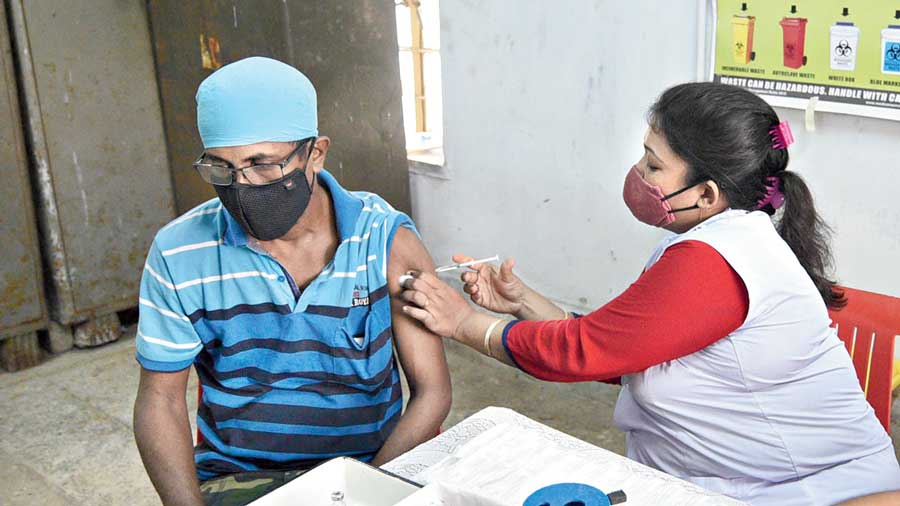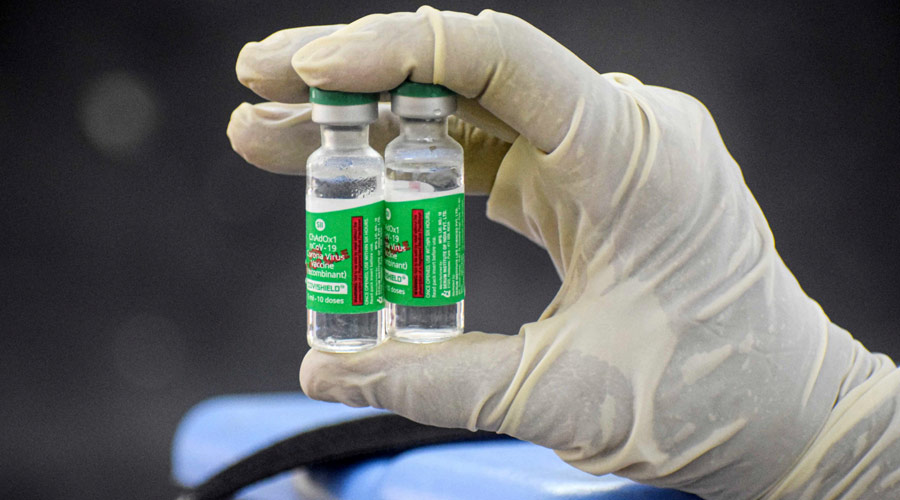The lack of population-level datasets in India that link Covid-19 hospitalisations with the patients’ vaccination status has handicapped efforts to determine when and to whom booster doses should be offered, medical experts have said.
Gaps and discordance in datasets maintained by three health agencies have hobbled experts’ attempts to generate evidence on the duration of protection from vaccines to guide decisions such as timing and age groups to be prioritised for boosters.
The demand for boosters in India is rising amid global studies indicating that vaccine-induced antibodies tend to wane after several months, fresh Covid-19 waves even in countries with large proportions of fully vaccinated population, and the spread of omicron.
The National Technical Advisory Group on Immunisation, an expert panel tasked with guiding the Centre on vaccination policies, met on Monday but much of the discussions centred on the need for more data for science-based decisions on boosters.
But poor quality datasets have stalled plans to combine test results data maintained by the Indian Council of Medical Research (ICMR), hospitalisation and disease outcome figures expected from the National Centre for Disease Control (NCDC), New Delhi, and vaccination numbers from CoWIN, the Union health ministry’s digital platform for the immunisation campaign.
“It is frustrating — India has administered over 1.28 billion doses, half of all adults are fully vaccinated, but we don’t have the data we need for evidence-based decisions on boosters,” said Gagandeep Kang, professor of clinical microbiology at the Christian Medical College, Vellore.
India’s campaign has mainly used two vaccines — Covishield, the AstraZeneca vaccine made by the Serum Institute, and Covaxin, the homegrown jab from Bharat Biotech.
Should recipients of either vaccine be prioritised for boosters over recipients of the other? Only data can tell.
“We need our own data — we can’t borrow global data for decisions on boosters,” Kang said. Other countries are using different vaccines, their populations might have experienced three or four waves, and the age distributions of their populations could be different from that of India.
The ministry updates every day daily new infections, recoveries, deaths, the numbers of Covid-19 tests done, and vaccine doses administered. But the integration of hospitalisation and vaccination records is critical for population-level assessments of the duration of vaccine effectiveness.
“We need only four essential parameters — patients’ age, dates they tested positive, their vaccination status and outcome after hospitalisation,” Kang said. Over 18 million people have tested Covid-19 positive since vaccination opened to all adults in April, but hospitalisation data remain patchy.
The ICMR has records of all positive cases, CoWIN has records of all vaccinated, and the NCDC is expected to have records on hospitalisations. But the NCDC depends almost entirely on states, and hospitalisation data from states has been patchy.'
Attempts to merge the three datasets have been disappointing, according to health researchers familiar with the outcomes of those attempts. The quality of data captured is so poor that just about 20 per cent of the records could be matched.
“A population-level study should have been planned at the start of the vaccination campaign,” said Santanu Tripathi, former head of clinical pharmacology at the Calcutta School of Tropical Medicine who had earlier this year suggested a study to follow up a million vaccinated people.But he found no takers for his proposal.
The ICMR’s National Institute of Epidemiology, Chennai, has tracked outcomes of hospitalisation and vaccination status of 3,800 Covid-19 patients in 11 hospitals across the country and studied the effectiveness of jabs in 117,000 Tamil Nadu police personnel.
But while these studies provide insights into vaccine effectiveness, experts say, decisions on boosters require age-stratified data on the duration of protection and information on how Covid-19 patients with other chronic health disorders respond to vaccines.
“What we’re seeing is a wasted opportunity — if data was collected in a consistent way, if the datasets were structurally compatible, it would likely have taken only about 48 hours to integrate them,” said Oommen John, a doctor-researcher at The George Institute for Global Health, New Delhi.
“But even now, it isn’t too late,” John said. “Every test positive case recorded by the ICMR should be mapped to vaccination status on CoWIN and the disease severity and outcome of all the hospitalised cases should be recorded. It isn’t difficult. But there has to be the will to do this.”












